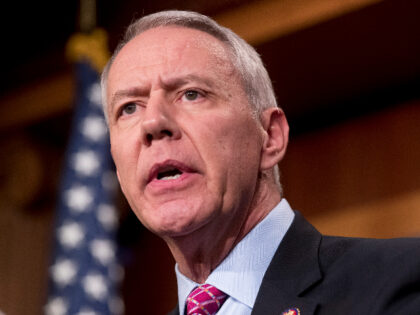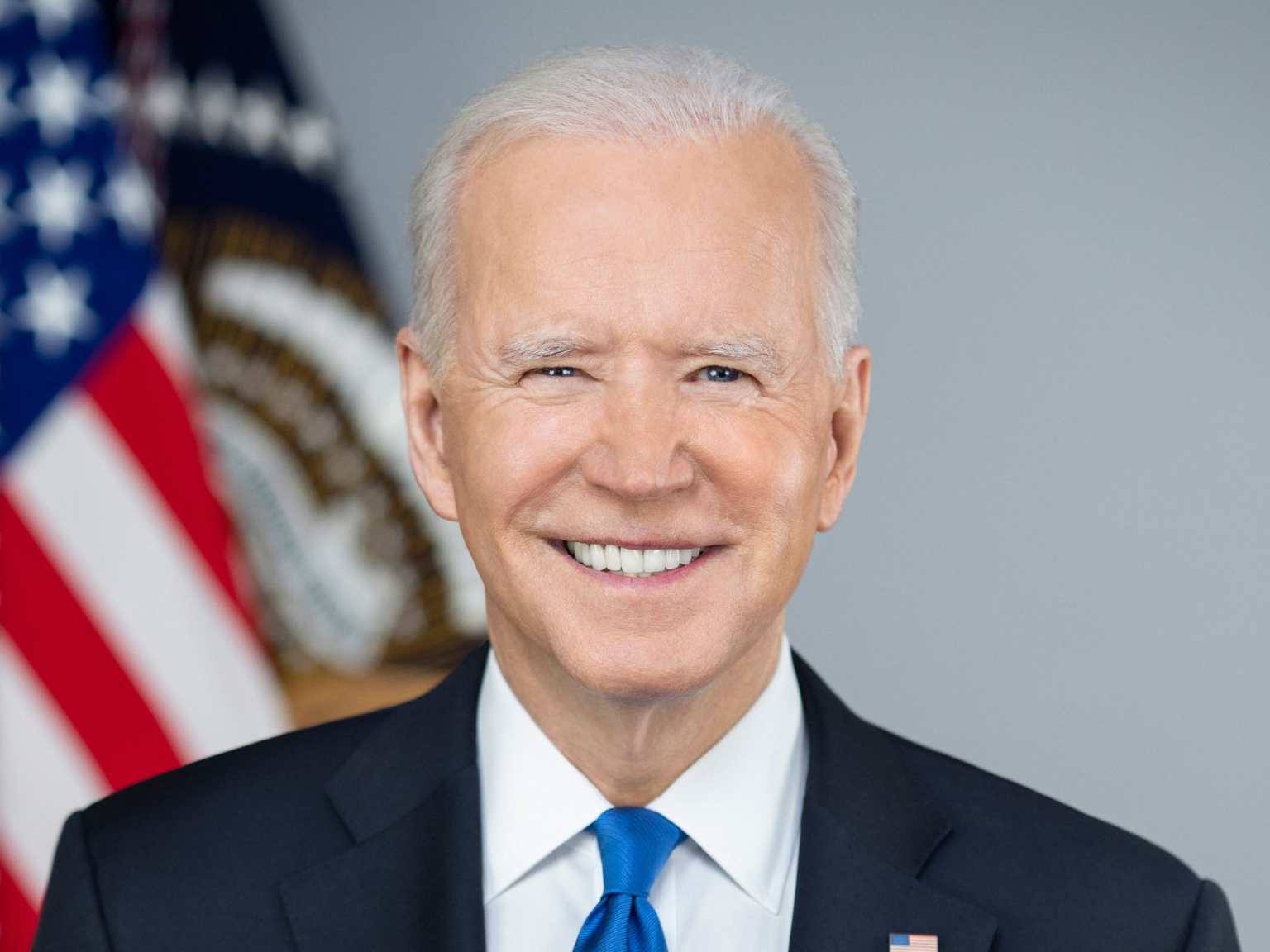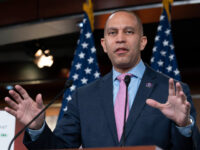
THREAD: bipartisan committee
LifeLine™ Media threads use our sophisticated algorithms to construct a thread around any topic you want, providing you with a detailed timeline, analysis, and related articles.
News Timeline


GOP House FIGHTS Back Against Judges Blocking Trump
— The GOP-led House is planning hearings on judges who have blocked President Trump’s actions. This is part of a larger effort to support Trump’s agenda and tackle legal challenges. Republicans want to examine judicial decisions that have stalled the administration’s policies.
In Wisconsin, Elon Musk and Donald Trump are stepping up their involvement in the state’s Supreme Court race. The result could greatly affect abortion laws and districting, benefiting Republican goals. Schimel needs to rally Trump supporters for this key election.
President Trump is pushing ahead with his immigration crackdown and federal overhaul despite backlash from both parties. His administration has cut thousands of federal jobs, drawing criticism at town halls across the country. Still, Trump is determined to advance his policy goals amid ongoing legal fights.

JEFFRIES at a CROSSROADS: Democrats Divided Over Trump Strategy
— Hakeem Jeffries, now in his third year leading House Democrats, faces a pivotal moment. He’s in talks with Chuck Schumer to align their strategies against Trump. At the same time, Jeffries is dealing with his own political challenges.
On a recent call with the caucus, Jeffries disagreed with Schumer’s decision to concede on spending to Trump. Some House Democrats privately believe that Schumer’s move may have prevented bigger problems. Unity is crucial as the party grapples with both internal and external pressures.
Nancy Pelosi has given private advice to Jeffries amid Democratic infighting over a controversial government funding bill. Her guidance could be key as the party seeks direction and unity during these turbulent times.
:max_bytes(150000):strip_icc()/GettyImages-2204942666-58692772a8594542b5cc0125467f84a1.jpg)
SENATE DRAMA: GOP Funding Bill Stops Shutdown Chaos
— The U.S. Senate passed a six-month funding bill, stopping a government shutdown just before the midnight deadline. Now, it waits for President Donald Trump’s approval. The bill keeps the government running until September 30, 2025, aligning with GOP priorities and offering few concessions to Democrats.
Senate Democratic Leader Chuck Schumer criticized the bill but supported it to avoid a shutdown’s dire consequences. He said, “The CR is a bad bill, but allowing Donald Trump to take even more power via a government shutdown is far worse.” The vote saw partisan division, with some Republicans opposing and some Democrats supporting it.
The funding bill boosts spending on defense and immigration while cutting certain non-defense programs. Analysts warn this could increase the national debt by $7 billion due to IRS funding cuts that may encourage tax evasion.
This marks a pivotal moment as both parties gear up for more talks on major border security and tax legislation in U.S. politics.

DEMOCRATS’ SHUTDOWN Dilemma: A Risky Game with Trump and Musk
— Senate Democratic Minority Leader Chuck Schumer is worried about a looming government shutdown. He admits they don’t have the 60 votes needed to pass the funding bill. Schumer suggests a one-month extension with unchanged spending to allow for bipartisan talks.
With President Trump and Elon Musk making big federal changes, shutdown scenarios have become more complex. Democrats see a chance to challenge Trump but risk looking ineffective if disruptions occur. Voting against the funding bill could backfire on Republicans, complicating political strategies further.
This situation highlights a tough moment for Senate Democrats as they deal with legislative chaos and potential shutdowns. The outcome may impact party dynamics and public perception before upcoming elections, showcasing the critical political struggles in Washington amid current administrative influences.

DEMOCRATS’ SHUTDOWN Gamble: Will They Risk It All?
— Senate Democratic Minority Leader Chuck Schumer warns that the 60 votes needed to pass the funding bill aren’t secured. He suggests a one-month extension with current spending levels for bipartisan talks. This move aims to strengthen Democrats’ position against President Trump but risks making them seem ineffective.
The threat of a government shutdown, which would furlough federal workers and disrupt critical operations, adds pressure on Democrats. Schumer’s strategy could either unify his party or gamble that Republicans will face backlash if a shutdown occurs.
Democrats refuse to back what they call a partisan Republican funding bill, intensifying Senate tensions amid ongoing tariff discussions under Trump’s administration. With only 52 Republican votes, failing to reach 60 could lead to a significant political showdown as both parties brace for potential fallout from their strategies.

DEMOCRATS BLOCK Bill to Protect Women’s Sports: Heated Debate Ensues
— Democrats in the Senate recently blocked a bill aimed at banning biological men from competing in women’s sports. The Protection of Women and Girls in Sports Act faced a filibuster, despite its clear language stating that sex should be recognized based on reproductive biology and genetics at birth.
During a heated exchange, Leland Vittert questioned how Democrats can claim to represent American values while opposing such measures. Jennifer McClellan argued against the bill, suggesting it would lead to invasive practices like checking children’s physical characteristics to enforce compliance. Vittert dismissed this as a “false talking point,” emphasizing that birth certificates already indicate sex.
McClellan maintained her stance, insisting that enforcement would require intrusive actions, which she believes are unacceptable. This debate highlights ongoing tensions between protecting women’s sports and addressing concerns about privacy and discrimination.
The issue remains contentious as both sides grapple with balancing fairness in sports with individual rights and freedoms. Conservatives argue for clear definitions based on biology, while opponents raise concerns about potential overreach and privacy violations.

FEDERAL Election MONITORING Cuts: Security Risks Soar
— The dismantling of federal election monitoring efforts has sparked concern among lawmakers and national security experts. Critics argue this move opens the door for foreign interference in upcoming elections. The lack of strong oversight could lead to vulnerabilities being exploited, prompting bipartisan talks on restoring effective monitoring mechanisms.
Democratic officials call the decision irresponsible, claiming it threatens democracy by reducing transparency in election processes. They urge a recommitment to safeguarding electoral integrity. Republican leaders are divided, with some supporting reduced federal involvement to limit overreach.
This development has raised alarms and prompted congressional hearings to assess the impact on election security. Various stakeholders call for immediate action to restore monitoring capabilities against potential foreign manipulation. As critical electoral events approach, the need for reinstating protective measures becomes clear.

COALITION’S Lunch Plan Stirs Fiery Debate Over Small Business Future
— The COALITION’s proposal to offer tax deductions for business lunches has sparked a heated debate. Treasurer Jim Chalmers criticized the plan, noting that 25,000 new firms are created monthly. He suggests this shows strong small-business growth despite economic hurdles. The Coalition argues their plan supports hospitality and highlights 27,000 insolvencies since Labor took office.
Westpac is boosting its business banking by investing $10 million in Lawpath to provide legal services to customers. This move aims to increase Westpac’s market share by offering a year-long subscription for legal documents and registration services. It reflects Westpac’s strategy of providing non-banking perks to attract small business clients.
The federal government claims Peter Dutton’s tax deduction plan for business lunches could cost taxpayers $1.6 billion annually if fully used by eligible businesses. This measure targets small businesses with turnovers up to $10 million and would be exempt from Fringe Benefits Tax for two years. Critics argue it shifts costs onto workers while aiming to cut red tape under a potential Dutton-Coalition Government.

— Lawmakers meet under heavy security amid snowstorm to certify election Despite challenging weather conditions, legislators gathered to fulfill the legal requirement for election certification

DEMOCRATS’ SHOCKING Letter: Israel’s Arms Sales Under Fire
— A group of left-wing Jewish Democrats, including Reps. Jan Schakowsky and Sara Jacobs, have signed a controversial letter about Israel’s military actions. The letter claims to support Israel’s right to self-defense but criticizes its compliance with international human rights laws. This suggests the U.S. might need to rethink arms sales to Israel amid ongoing conflicts with terrorists and Iran.
The Jewish News Syndicate reports that while the letter doesn’t directly request stopping aid, it mentions statutes that could lead to such actions if humanitarian aid is blocked. The signatories accuse Israel of restricting aid delivery, raising concerns about its adherence to U.S. arms sales laws.
Reps. Jason Crow, Madeleine Dean, and Chrissy Houlahan led this contentious effort. They urge the administration for a thorough review of Israel’s compliance with these laws due to unresolved issues like arbitrary restrictions on aid and inadequate delivery routes.
— Biden Pardons Son Hunter, Upholding Family Loyalty President Joe Biden’s decision to pardon his son Hunter reflects his longstanding commitment to family support, despite previous promises
— Biden PARDONS Son Hunter, Avoiding Possible Prison Sentence President Joe Biden has granted a pardon to his son, Hunter Biden, reversing earlier commitments to refrain from using presidential powers for family benefit

— MPs Prepare for Free Vote on Assisted Dying Bill The House of Commons is set to hold a free vote, sparking diverse opinions among MPs regarding the proposed assisted dying legislation

— Senate Pressures Novo Nordisk CEO Over Weight Loss Drug Pricing Lawmakers confront the CEO, demanding answers on high costs and calling for fairer pricing practices

SENATE PASSES Bill To Reform Troubled Federal Prisons
— The Senate passed the Federal Prison Oversight Act on Wednesday, aiming to bring transparency and accountability to the troubled Bureau of Prisons. The House approved the bill in May, and it now awaits President Biden’s signature. This legislation introduces an independent ombudsman to investigate complaints and mandates risk-based inspections by the Justice Department’s Inspector General.
Sen. Jon Ossoff, D-Ga., introduced the bill in 2022 during his investigation into the Bureau of Prisons as chair of a Senate subcommittee. He collaborated with Sen. Dick Durbin, D-Ill., and Sen. Mike Braun, R-Ind., forming a bipartisan group to address prison issues exposed by AP reporting. Reps. Kelly Armstrong, R-N.D., and Lucy McBath, D-Ga., supported the House version of this critical reform measure.
Ossoff called Wednesday’s passage “a major milestone,” emphasizing that his investigation highlighted an urgent need for better oversight in federal prisons.
Advocates for incarcerated individuals also praised this legislative achievement as a significant step forward in addressing systemic corruption and misconduct within the prison system.

MIKE JOHNSON’S Bipartisan Approach Sparks Debate Within His Own Party
— Mike Johnson upholds his commitment to bipartisan leadership, despite facing backlash from some party members. In a recent interview, Buck highlighted Johnson’s focus on evaluating legislative packages solely on their merits, not party lines. This method demonstrates the unique leadership necessary in today’s divided political climate at Capitol Hill.
During the conversation, concerns emerged about possible compromises made with Democrats to gain their support. Marjorie Taylor Greene voiced doubts about these agreements, questioning what Johnson had to give up in exchange for Democratic backing. Despite these concerns, Buck remains hopeful about the longevity of such bipartisan efforts based on the specific legislation involved.
Buck is confident that Mike Johnson will navigate through internal party disputes and maintain his role as a leader who collaborates across party boundaries for effective governance. “I think Mike survives,” he declared, underscoring Johnson’s persistence and commitment to advancing important legislation despite facing criticism.

NPR BIAS Scandal: Calls for Defunding Surge as Political Imbalance Revealed**
— Senator Marsha Blackburn aligns with former President Trump, advocating for the defunding of NPR due to perceived bias. This push gains momentum following the resignation of NPR editor Uri Berliner, who exposed a stark political imbalance within the organization’s Washington, DC office. Berliner disclosed that among 87 registered voters at NPR, not one is a registered Republican.
NPR’s chief news executive Edith Chapin contested these allegations, asserting the network’s dedication to nuanced and inclusive reporting. Despite this defense, Senator Blackburn condemned NPR for its lack of conservative representation and scrutinized the justification for funding it with taxpayer dollars.
Uri Berliner, while opposing defunding efforts and commending his colleagues’ integrity, resigned amid concerns over media impartiality. He expressed his hope that NPR would maintain its commitment to significant journalism amidst ongoing debates about its political orientation.
This controversy spotlights broader issues regarding media bias and taxpayer funding in public broadcasting sectors, questioning whether public funds should support organizations perceived as politically skewed.

GOP’S SELF-Destruction: Gowdy Slams Republican Candidate Choices and Election Failures
— In a thought-provoking exchange, host Rich Edson engaged in a debate with guest Trey Gowdy about the looming Senate budget. Edson raised doubts about whether Republicans had managed to negotiate an advantageous deal, despite not holding sway over the Senate or White House. In response, Gowdy didn’t hold back from critiquing his own party. He highlighted that the GOP’s subpar candidate selection and lackluster election performance were at the root of their current predicament. As evidence, he referenced recent electoral disappointments. These included last November’s midterms where House Republicans fell short of expectations, and the 2021 Georgia elections which saw two Republican Senators unseated. Looking ahead, Gowdy sounded an alarm about potential repercussions if Democrats seize control of all three branches — House, Senate, and White House. He warned that a detrimental budget bill would be unavoidable in such circumstances. The responsibility for this possible outcome? According to Gowdy, it rests squarely on GOP shoulders due to their poor candidate choices and failure to secure winnable elections.
Stay updated with more news by following Pam Key on Twitter @pamkeyNEN.

SENATE Triumphs: $953 Billion AID Package Passed Despite GOP Divisions
— The Senate, in a significant move early Tuesday, passed a $95.3 billion aid package. This substantial financial support is destined for Ukraine, Israel, and Taiwan. The decision comes despite challenging negotiations that have lasted months and growing political divisions within the Republican Party over America’s international role.
A select group of Republicans held the Senate floor throughout the night in opposition to the $60 billion earmarked for Ukraine. Their argument? The U.S. should first address its domestic issues before allocating more funds overseas.
However, 22 Republicans joined nearly all Democrats to pass the package with a 70-29 vote count. Supporters argued that ignoring Ukraine could potentially strengthen Russian President Vladimir Putin’s position and pose threats to global national security.
Despite this victory in Senate with strong GOP backing, uncertainty hangs over the bill’s future in House where hardline Republicans aligned with former President Donald Trump are opposing it.

GAME-CHANGER or Political Suicide? House Republicans Ponder Biden Impeachment
— Under the guidance of Speaker Mike Johnson (R-LA), House Republicans are contemplating the impeachment of President Joe Biden. This idea stems from numerous 2023 investigations into both Biden and his son, Hunter, who are accused of exploiting their family name for personal gain.
The decision to impeach could be a tricky one for Republicans. On one hand, it could resonate with their core supporters as payback against Democrats’ previous attempts to impeach ex-President Donald Trump. On the other hand, it might push away independent voters and undecided Democrats.
Calls for Biden’s impeachment aren’t recent developments. Rep. Marjorie Taylor Greene (R-GA) has advocated for investigations into the president since he took office. With an ongoing inquiry and years worth of evidence gathered, Speaker Johnson might sanction an impeachment vote as soon as February 2024.
Nevertheless, this strategy carries significant risk. The evidence put forth by House Republicans against Biden seems vague at best, and initiating an inquiry doesn’t necessarily imply backing for impeachment itself — a point that 17 Republican House members from districts won by Biden in 2020 are eager to emphasize to their voters.

Biden INKS $8863 Billion Defense Act, SLAMS Congressional Oversight
— President Joe Biden has put his signature on the National Defense Authorization Act, green-lighting a hefty $886.3 billion in spending. This act aims to equip our military with the means to deter future conflicts and provide support for service members and their families.
Despite giving his approval, Biden raised eyebrows with concerns over certain provisions. He argues these clauses excessively limit executive power in national security matters by calling for more congressional oversight.
According to Biden, these provisions could force the disclosure of highly sensitive classified information to Congress. There’s a risk this could expose crucial intelligence sources or military operational plans.
The extensive bill, which covers over 3,000 pages, sets out a policy agenda for the Department of Defense and U.S military but doesn’t earmark funding for specific initiatives or operations. Additionally, Biden voiced his ongoing concern about clauses barring Guantanamo Bay detainees from setting foot on U.S soil.

Bipartisan Committee CALLS for END of China’s Trade Status: A Potential Jolt to US Economy
— A bipartisan committee, led by Rep. Mike Gallagher (R-WI) and Rep. Raja Krishnamoorthi (D-IL), has been studying the economic effects of China on the US for a year. The investigation centered on job market changes, manufacturing shifts, and national security concerns since China joined the World Trade Organization (WTO) in 2001.
The committee released a report this Tuesday recommending President Joe Biden’s administration and Congress to implement nearly 150 policies to counteract China’s economic influence. One significant suggestion is to cancel China’s permanent normal trade relations status (PNTR) with the U.S., a status endorsed by former President George W. Bush in 2001.
The report argues that granting PNTR to China did not bring anticipated benefits for the US or trigger expected reforms in China. It asserts that this has led to a loss of vital U.S. economic leverage and inflicted damage on U.S industry, workers, and manufacturers due to unfair trade practices.
The committee proposes shifting China into a new tariff category that reinstates U.S economic leverage while reducing dependence on Chinese

US-CHINA Economic Reset PROPOSED: Will Higher Tariffs Be the New Norm?
— A bipartisan committee in the House has put forth a proposal for a complete overhaul of US economic ties with China. This includes the suggestion of implementing higher tariffs. The pivotal recommendations were released in an extensive report by the House Select Committee on Strategic Competition Between the United States and Chinese Communist Party, chaired by Mike Gallagher (R-WI) and Raja Krishnamoorthi (D-IL).
The report posits that since its induction into the World Trade Organization in 2001, Beijing has been engaged in an economic conflict against both the US and its allies. It outlines three key strategies: revamping America’s economic relationship with China, limiting U.S. capital and technological inflow into China, and strengthening U.S. economic resilience with allied support.
One notable recommendation is to shift China to a new tariff column to enforce more robust tariffs. The committee also suggests imposing tariffs on essential semiconductor chips used in everyday devices like phones and cars. This move aims to prevent Chinese domination in this sector from granting Beijing undue control over global economy.

ALARMING DHS Revelation: 670,000 Border 'Gotaways’ in FY2023 — The Shocking Truth Behind the Numbers
— Fox News recently uncovered a startling revelation from officials at the Department of Homeland Security (DHS). They disclosed to Arizona’s congressional delegation and House and Senate Judiciary and Homeland Security committees that an astounding 670,000 known “gotaways” slipped through the border in FY2023.
In addition to this alarming figure, lawmakers were made aware of a daily influx of approximately 5,000 illegal immigrants into the U.S. These individuals are handed off to non-governmental organizations (NGOs) that aid them in reaching their final destinations. This rate could equate to nearly 1.8 million illegal migrants entering the country each year.
The DHS report also shed light on a record-breaking number of daily encounters by Border Patrol with migrants — over 12,000 in one day alone. This follows a record-setting year with more than 2.4 million encounters in FY23 and an unprecedented monthly high exceeding 260,000 last September.
When questioned about collaboration efforts with Mexico to control migrant flow at the southern border, DHS officials expressed concern for the “safety and security of noncitizens”. They highlighted risks these individuals often face due to dangerous travel methods like illicit train rides.

JEFFRIES’ JUDGEMENT: Praises Biden, Condemns ‘Irresponsible’ Maga Republicans
— Jeffries recently commended President Biden’s leadership, emphasizing his efforts to uphold the special bond between the United States and Israel. He also underscored Biden’s commitment to Ukraine in the face of Russian aggression and his provision of humanitarian aid to Palestinians in Gaza.
The House and Senate are ready to proceed under Biden’s guidance, Jeffries stated. However, he lambasted extreme MAGA Republicans for their alleged attempts to tie aid to Israel during its conflict. Jeffries branded this move as “irresponsible,” accusing them of political isolation.
Jeffries called for a comprehensive review of President Biden’s proposed package, citing the current perilous global climate. He criticized what he perceives as partisan games played by extreme MAGA Republicans. Jeffries characterized their actions as “unfortunate” during these challenging times.

Video
DEMOCRATS BLOCK Border Security Funding, Spark Outrage
— House Republicans proposed a bill to increase funding for border security, but it was blocked by Democrats. The bill aimed to allocate additional resources for border patrol agents and technology. This move has sparked outrage among conservative lawmakers who argue that securing the border is a top priority.
“It’s disappointing that our colleagues across the aisle don’t see the urgency in protecting our nation’s borders,” said Rep. Jim Jordan (R-OH). He emphasized that increased funding is essential to combat illegal immigration and drug trafficking.
Democrats argued that the proposed bill lacked comprehensive immigration reform measures, which they believe are necessary for any effective solution. They also raised concerns about the potential impact on asylum seekers and humanitarian efforts at the border.
The debate over border security continues to be a contentious issue in Congress, with both sides standing firm on their positions. As this stalemate persists, many Americans remain concerned about national security and immigration policies.
More Videos
Invalid Query
The keyword entered was invalid, or we couldn't gather enough relevant information to construct a thread. Try checking the spelling or entering a broader search term. Often simple one-word terms are enough for our algorithms to build a detailed thread on the topic. Longer multi-word terms will refine the search but create a narrower information thread.
















Social Chatter
What the World is SayingConsultative Meeting Re: S. No. 890 (January 7, 2025). Consultative Meeting Re: S. No. 890 (January 7, 2025) Agenda: S. No. 890 - Rightsizing the National Government Act of 2022 (By: Sen. Escudero)
. . .Consultative Meeting Re: S. No. 890 (January 7, 2025). Consultative Meeting Re: S. No. 890 (January 7, 2025) Agenda: S. No. 890 - Rightsizing the National Government Act of 2022 (By: Sen. Escudero)
. . .Consultative Meeting Re: S. No. 890 (January 7, 2025). Consultative Meeting Re: S. No. 890 (January 7, 2025) Agenda: S. No. 890 - Rightsizing the National Government Act of 2022 (By: Sen. Escudero)
. . .Consultative Meeting Re: S. No. 890 (January 7, 2025). Consultative Meeting Re: S. No. 890 (January 7, 2025) Agenda: S. No. 890 - Rightsizing the National Government Act of 2022 (By: Sen. Escudero)
. . .Consultative Meeting Re: S. No. 890 (January 7, 2025). Consultative Meeting Re: S. No. 890 (January 7, 2025) Agenda: S. No. 890 - Rightsizing the National Government Act of 2022 (By: Sen. Escudero)
. . .